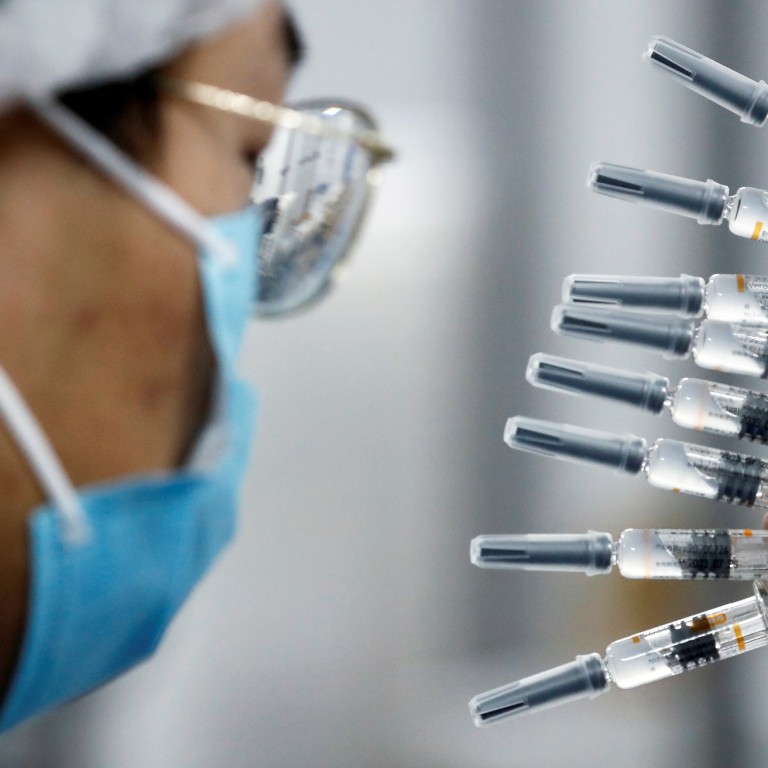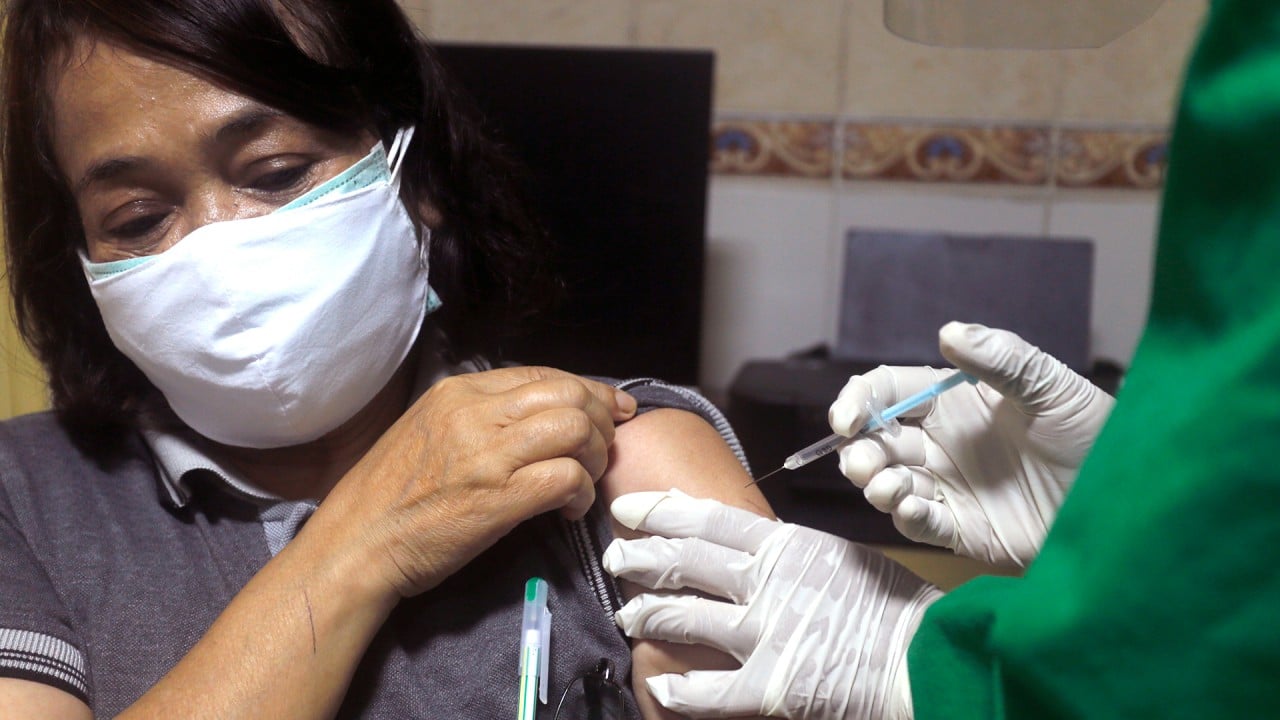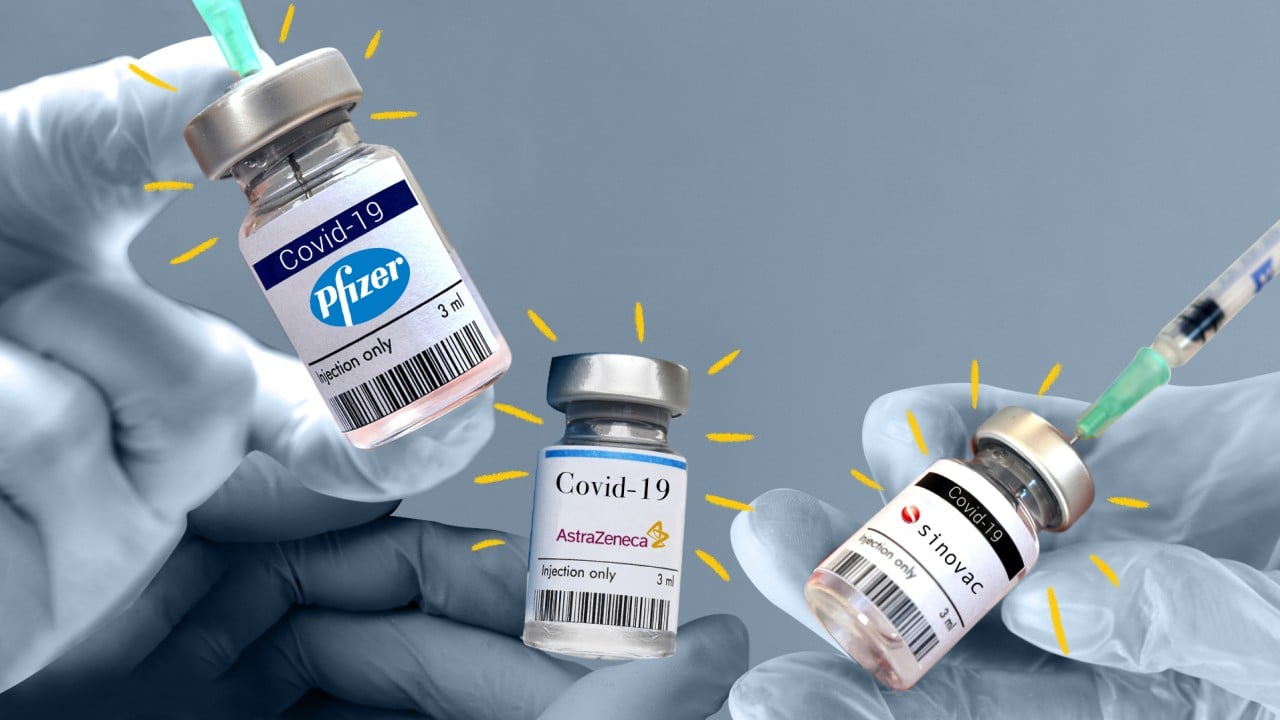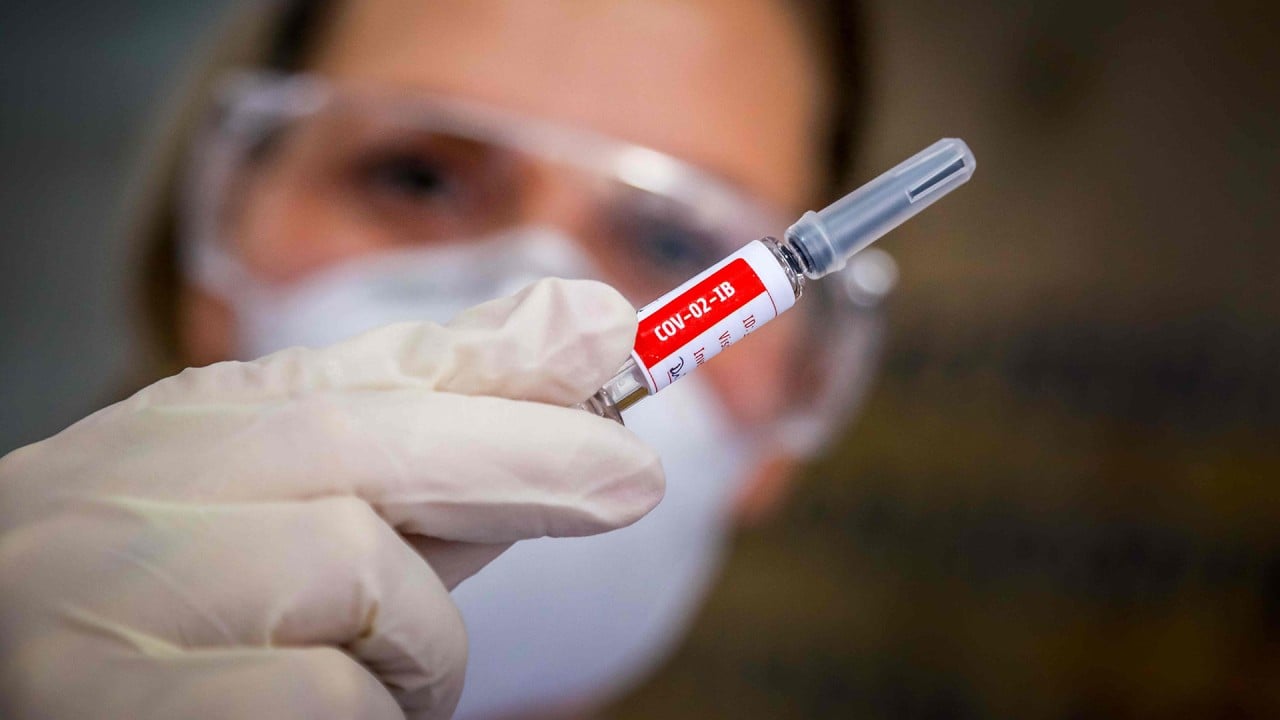
Coronavirus: Scientists concerned by way data from Chinese drug firm Sinovac’s vaccine trials is coming out
- The firm’s Brazilian partner the Butantan Institute has promised to disclose more information after it claimed the drug had a 78 per cent efficacy rate
- But researchers question the figure and ask why the Chinese pharmaceutical company has not commented publicly on the trial results
Scientists have criticised the way data from the trials of a vaccine made by the Chinese drug company Sinovac has been released, saying it has caused confusion.
The complaints have prompted the pharmaceutical company’s Brazilian partner, the Butantan Institute, to promise to provide the complete data at a conference on Tuesday, although it is not clear whether they will be able to address all the concerns raised.
But Sinovac and the Chinese government have yet to comment on the data.
Jerome Kim, director general of the International Vaccine Institute, criticised the way information was trickling out: “It is confusing when the group [Sinovac] that has access to the data from Indonesia, Turkey, and Brazil makes no official comment as its trial data are presented piecemeal. Are these authorised or unauthorised? If they are authorised, why doesn’t the company comment?
“We don’t know how the analysis was done. We also don’t know if the analyses can be combined. Is this an official number that Sinovac will stand by?”

02:04
Indonesia says CoronaVac is 65.3% effective as Chinese-made Covid-19 vaccine makes inroads in Asia
Sinovac did not respond to questions about when a combined analysis will be released.
Chinese vaccine maker hoping to inoculate children as young as three
A source at a Chinese vaccine manufacturer has previously said that all data had to be verified by the government to avoid discrepancies.
Scientists have also said that the information that has been made available about Sinovac’s vaccine suggests that the efficacy level is much lower than 78 per cent.
Last week, Dimas Covas, director of the Butantan Institute, told a press conference that about 220 participants in the trials had been infected with Covid-19 – 160 in the placebo group and almost 60 of those who received the vaccine.
The trial protocol said that the number of volunteers receiving placebos and the vaccines should be evenly split, but the institute has not disclosed the actual numbers of the two groups.

09:50
SCMP Explains: What's the difference between the major Covid-19 vaccines?
“It was a 1:1 randomisation of 13,000 volunteers. So, 6,500 each to vaccine and placebo. Sixty infected vaccinated, 220 infected unvaccinated. Isn’t that less than 78 per cent? “ Kim said.
“It seems more like the AstraZeneca regimen [which achieved] 62 per cent, which is 70 per cent if they combined the half-dose group with the rest.”
Peter Smith, a professor of tropical epidemiology at the London School of Hygiene and Tropical Medicine, gave a similar assessment.
WHO chief tells rich countries: stop cutting the coronavirus vaccines queue
“If the numbers of cases in vaccinated and placebo groups are truly 60 and 160 respectively, this corresponds to a vaccine efficacy of 62 per cent,” he said.
On Monday Reuters reported that the Butantan Institute would announce that the drug’s “general efficacy” would be around 60 per cent, while the figure of 78 per cent referred to its “clinical efficacy”, although it is not clear how these figures were calculated.
There have also been partial disclosures of the results from two other Sinovac trials, in Indonesia and Turkey, with the former having 65 per cent efficacy and the latter 91 per cent, although these were based on a relatively small number of cases and infections.
“Looking at all of these partially reported results together would suggest a likely efficacy of the vaccine of around 65 to 70 per cent,” Smith said, which was “not dissimilar” to the results from the drug AstraZeneca produced in collaboration with Oxford University.
Smith said that piecemeal disclosures are not uncommon as it is a way to prevent insider trading, but the problem in this case is that very few details have been given in press releases and “to my knowledge, these results have not been presented either at international meetings or submitted to peer-reviewed journals. Without such further details there is bound to be speculation about the credibility of such data as has been released”.

01:50
China’s Sinovac Covid-19 vaccine proves more than 50 per cent effective in Brazil trials
The delays and lack of information also pose a problem for regulators waiting to approve the vaccines. For example, Hong Kong, which plans to buy 7.5 million doses of the vaccine, has had to delay the review of its emergency use application.
Pfizer raises hopes vaccine can fight new coronavirus strains
“There is no information on the side-effect profile, no information about the antibody level,” said a source close to the Hong Kong regulator, who declined to be named.
“We don’t even know the age range [of trial participants] and any subjects with comorbid illnesses,” he said.
Professor Dale Godfrey, a senior principal research fellow and immunology theme leader at the University of Melbourne’s Doherty Institute, said the vaccine looked promising but there were still questions that needed to be answered.
“It will be valuable to see more details about how vaccine recipients responded to the immunisations. What level of reactogenicity [a short-term reaction] was observed?
“Do these vaccines prevent infection and transmission, or just disease? Will this vaccine provide protection against the new mutant strains that are circulating? How durable will this immunity be? These questions will probably take longer to answer, but these are obviously important,” Godfrey said.

